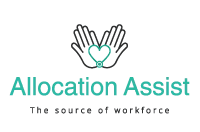Dr. Michael McLaughlin is a Consultant Intensivist/Anaesthesiologist from Scotland. He completed his specialist training in Glasgow, where he then worked as an NHS Consultant in Anaesthesia and Intensive Care Medicine for five years. Dr. Michael relocated to American Hospital Dubai in January 2021, where he is now the Director of Intensive Care. In this interview with Dr Michael McLaughlin, he shares his journey and insights into his role. He was also recently appointed Group Chief of Internal Medicine at American Hospital Dubai.
Building on his training and experience from the UK, Dr Michael is contributing to the development and expansion of the Hayat Organ Donation programme in the UAE. The Hayat Organ Donation Programme, initiated in 2017 by the Ministry of Health and Prevention (MOHAP), has gained international recognition for its remarkable success in raising awareness about organ donation and encouraging organ donor registration. Over 1000 organ transplants have been carried out in the UAE since the initiation of the Hayat programme.
Thank you so much for your time today, Dr. Michael. Could you start by giving us a bit of background about yourself, your specialist training, and your experience?
Thank you very much for the invitation, Emilie Nice to see you again. I’m a Consultant Intensivist and Anesthesiologist, and I’m the Director of the Intensive Care Unit at American Hospital Dubai. I moved here in January 2021 from Scotland, where I had lived and worked all my life. Then, I studied medicine at the University of Dundee and then moved down to Glasgow, where I did the majority of my anaesthesia ICU training. I then worked as a Consultant at Glasgow Royal Infirmary for five years before moving here.
How was your experience relocating to work at the American Hospital in Dubai?
So definitely it was a very interesting time. I came here in January 2021, after the first wave of COVID-19, and the world was a very different place. I remember going to Glasgow Airport, and it was me and my family sitting in an almost empty airport waiting to fly to Dubai, Everything was closed. We received a very warm welcome from American Hospital and were very well looked after.
They put us into an apartment until we found our feet, which was really very helpful. Then the second COVID wave hit almost within the first week that I arrived. So it was full throttle from there with no time to stop, and it was like that for months. So by the time we got through the next wave, my family had already settled in because it had been a few months. It was a very busy time, and after that, I got used to living in Dubai and not just working here.
You were literally thrown into the deep end! How did your colleagues and the management at the American Hospital support you during that time?
The ICU department was growing at that time. It was the same in other countries during the COVID pandemic – even back in Glasgow, we had to expand to take the patients that were coming through the door. We have a very good senior team at American Hospital Dubai – Mr. Sherif Beshara is a fantastic CEO, and Dr. Tarek Dufan is an excellent Chief Medical Officer. They provided every resource possible at that so that we could operate as a COVID hospital, and not every hospital did that within the UAE. But American Hospital took patients from everywhere, we helped the government sector, and we were a very, very busy unit. Ultimately, we had very good outcomes as well, which I think that’s a testament to just how well-organised that was.
Absolutely. It showed how resilient and how strong the UAE and its healthcare system are. I was really impressed with how the leadership, the government, the hospitals, and everyone else dealt with the pandemic.
There was a very good documentary on the COVID-19 response in Dubai, made by the Discovery Channel, which American Hospital was part of. It was very interesting to take a step back from that time afterward and watch it. also, It was very emotional, and it comes back to your point of the resilience of the healthcare system and how Dubai and the UAE shifted people’s jobs across some other sectors to maintain things. It was just really, really incredible to watch that.
Dubai has people from all over the world living and working here. What do you find are the challenges and benefits of working with international colleagues from different countries?
To be honest, I think the challenge is probably more for them understanding my Scottish accent – I think they are finally getting used to it after 4 years! But I think there are more benefits than challenges. It’s great to have international colleagues, and I have a fantastic team. Predominantly, they’re all US-trained from all over the USA, including pulmonologist intensivists, and all have really extensive training. The core training for all of us is pretty much the same. Our primary goal is to provide the best patient care, and I learn from them, and they learn from me. So, this collaborative approach within an international team is beneficial for patients. We follow the best international standards, including guidance from the NHS in the UK and from the USA, along with the DHA policies and regulations in order to do what’s best for patients.
That’s a really good point. Doctors who are interested in working here often ask about what system they follow here in the UAE, and because it’s so international.
The DHA policies and regulations that we follow are all based on international guidance, such as from the World Health Organisation, the American Heart Association, or the American Society of Anaesthetists. Then we do get other guidance, such as the NICE guidelines from the UK, which is amalgamated into this system in order to deal with the patient population that we have, as every patient population, every demographic is slightly different. So there’s a real mix of evidence-based practice from all over the world, not just the US and the UK but also from other places in Europe and Australia.
Can you tell us more about ‘Hayat’, the UAE’s Organ Donation Programme, and what you and your team’s role at the American Hospital has been with that programme?
The Hayat programme in the UAE has been an extraordinary development. In 2016, the law regarding organ donation changed, especially around what we call death by neurological criteria – brain death. The Hayat program began in 2017 and is effectively a platform for the control and regulation of the donation and transplantation processes.
When I last checked, there were about 32,000 people who had registered their wish to be donors within a short period of time. There have been about 1,000 organs transplanted from about 255 donors, around 150 of which were just last year, in 2024. It has been an accelerated process, so much that the UAE has been used as a case study for several other countries, looking at how you can go from zero to where we are now in terms of donors per million population.
So there’s been a huge growth and development, which is really important for patients here in the UAE and in the GCC Gulf region because organs are shared beyond Dubai and the UAE.
In terms of my role, I have a more local role within the hospital and then external to that. Part of my role, after COVID and everything had settled down, was to build what we call the organ donation unit within the hospital. This is the ability to identify potential donors, particularly within my field in the ICU. If there are no donors, there are no transplantations, so we need to identify patients who could potentially become donors. That facilitates early communication with families, and with donation teams. It took quite a lot of work to build up that behavioural change within the hospital, as well as training in the policies and the processes that we have to follow. Also, how we protect the organs.
If someone is diagnosed as being brain-dead, then there’s a process to protect their organs so that they don’t get damaged any further when the brain is no longer working. It’s what we do for patients in ICU – we provide organ support – but this is just really another level for another purpose. In my external role, I have a good relationship with the committee here. I’ve travelled with them to Europe. A couple of years ago, we went to hospitals in Athens, Zagreb, Madrid, and Barcelona to see the best practice donation sites. It was really fascinating to see and bring back information to adopt it into our own policies. Also, I provide help when needed for second opinions, for brain death, or for discussions about consent for the donation process.
At American Hospital, how do you collaborate with other hospitals in the region for organ donation?
The collaboration is done under the Ministry of Health, MOHAP and the DHA, and the Committee for Organ Donation Transplantation. The committee is the team that determines which patients you are asked to see. They may ask doctors who have a similar cultural or religious background to the family. It’s quite important to try and be as close to the patient and their family at a very difficult time.
You can imagine, we have very difficult conversations at a traumatic time, and we have to be very sensitive. American Hospital has been very open and supportive of this process. They allow me to go to other hospitals when I’m asked by the committee to give second opinions or to speak to families. They also provided training, not just for me to do the advanced diploma for donation transplantation, but also for our nursing staff who are part of the team. Additionally they provided that fairly extensive course, which is normally carried out in Barcelona.
It’s amazing what you and the hospital have achieved, the progress is just phenomenal.
With the hospital’s support, we have achieved a lot in a relatively short period of time. It has been built up from nothing to now having our own internal tracker for potential donors. We have an automated process that will pick up certain ICD-10 codes and alert myself and the team every morning that we may have potential donors to go and see and to have a discussion. It is still a work in progress. Almost on a weekly or monthly basis, there are changes or evolutions so that we are constantly improving. We learn from little things, like maybe the form wasn’t quite right from before, or maybe there was one word out of place. So we learn and adapt as we go.
Do you ever get to see or hear stories of the patients who have been helped through organ donation?
In the UK, they have a very well-established system. You would always get a letter from the donation coordinator afterward and it would say thank you for your help with this donation and some details about the recipient and the difference it has made for them. These are some of the most incredible, emotive letters I’ve ever read, and I keep them all. I have brought up doing something similar here but there are some differences and issues around confidentiality – but sometimes we do hear back from patients themselves.
Hearing the difference that organ donation makes to people’s lives and their families can encourage other people to be involved with such decisions. There was a seventeen-year-old young man, a talented golf prodigy in Dubai, called Viggo, who suffered a tragic accident and donated his organs after his death. His mother now speaks very candidly about organ donation. She’s amazing. I’ve heard her speak, and I’ve met he, and she’s wonderful,l and she’s doing a really good job of raising awareness about organ donation.
It’s bringing something good out of this tragic event, a gift that’s really incredible for multiple people. That young man saved five lives through organ donation. His death is a tragedy, but his mother has really transformed that as best she can into this incredible positive movement for donation. It’s incredible.
Amazing, really moving. And how was your experience working with Allocation Assist?
It was great. Really straightforward. I know Allocation Assist has evolved so much since the time that I first contacted you almost five years ago. Firstly, the licensing was just a breeze. Then after I got my licence, you helped me find the right hospital. I probably get two messages a week in my LinkedIn inbox asking what I think about Allocation Assist – are they a real company, and can I trust them? I’ve always got positive things to say. You made the process really, really smooth. It’s so important to have this help at a time when you’re thinking of moving and you’ve got a lot of stress. You made the whole process easy.
Thank you so much, Dr. Michael.



